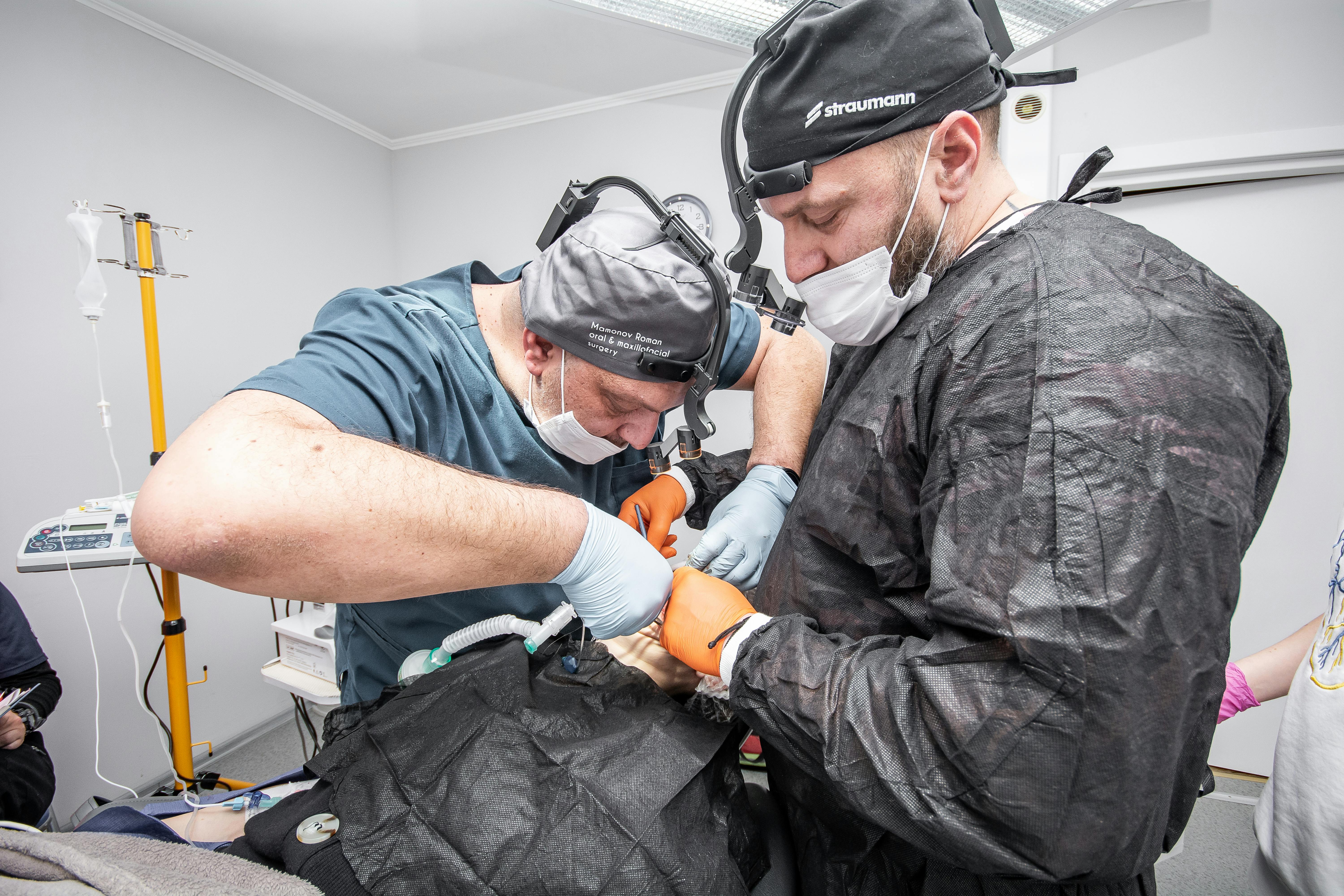If you’re looking for natural ways to manage the symptoms of obsessive-compulsive disorder (OCD), you might be wondering if there are any supplements that could provide some relief. Luckily, there’s a plethora of research and anecdotal evidence suggesting that certain supplements may indeed help in managing OCD symptoms. From popular options like magnesium and omega-3 fatty acids to lesser-known alternatives like N-acetylcysteine and inositol, exploring these supplements could offer valuable insights into potential avenues for finding relief from the challenges of OCD. So, let’s dive into the world of supplements and uncover the possibilities they hold for managing OCD symptoms in a friendly manner.

Omega-3 Fatty Acids
What are omega-3 fatty acids?
Omega-3 fatty acids are essential fats that are crucial for overall health and well-being. They are considered “essential” because our bodies cannot produce them, and we must obtain them through our diet or supplements. There are three main types of omega-3 fatty acids: alpha-linolenic acid (ALA), eicosapentaenoic acid (EPA), and docosahexaenoic acid (DHA).
Research on omega-3 fatty acids for OCD
Studies have shown that omega-3 fatty acids may have a positive impact on symptoms of obsessive-compulsive disorder (OCD). Research suggests that these fatty acids may help reduce anxiety and improve cognitive function, which are key factors in managing OCD symptoms. However, more research is needed to fully understand the effectiveness of omega-3 fatty acids in treating OCD.
Recommended dosage and precautions
The recommended dosage of omega-3 fatty acids for individuals with OCD varies depending on factors such as age, overall health, and the severity of symptoms. Generally, a daily intake of 1000-2000 mg of EPA and DHA combined is recommended for adults. It is important to consult with a healthcare professional to determine the appropriate dosage for your specific needs.
When taking omega-3 fatty acid supplements, it is important to choose high-quality products from reputable brands to ensure purity and effectiveness. Additionally, individuals who are taking blood-thinning medications should exercise caution and consult with their healthcare provider before starting omega-3 supplementation.
N-Acetylcysteine (NAC)
What is N-Acetylcysteine (NAC)?
N-Acetylcysteine (NAC) is a supplement that contains the amino acid cysteine. It acts as a precursor to glutathione, a powerful antioxidant in the body. NAC has been widely studied for its potential therapeutic effects on various mental health conditions, including OCD.
Research on NAC for OCD
Several clinical trials have investigated the use of NAC as a supplement for managing OCD symptoms. The results have shown promise, indicating that NAC may help reduce obsessive thoughts and compulsive behaviors. However, further research is needed to determine the precise mechanisms by which NAC exerts its effects on OCD.
Recommended dosage and precautions
The recommended dosage of NAC for OCD typically ranges from 1200-3600 mg per day, divided into multiple doses. It is important to start with a lower dosage and gradually increase it under the guidance of a healthcare professional. NAC may cause side effects in some individuals, including gastrointestinal discomfort, headache, and dizziness. If you experience any adverse effects, discontinue use and consult with your healthcare provider.

Inositol
What is inositol?
Inositol is a naturally occurring sugar alcohol that is found in various foods and can also be synthesized by the body. It plays a crucial role in cell signaling and has been investigated as a potential supplement for managing OCD symptoms.
Research on inositol for OCD
Several studies have examined the efficacy of inositol in reducing symptoms of OCD. The results have been promising, with evidence suggesting that inositol supplementation may help decrease obsessive thoughts and compulsive behaviors. However, more research is needed to fully understand the optimal dosage, long-term effects, and potential interactions with other medications.
Recommended dosage and precautions
The recommended dosage of inositol for OCD typically ranges from 12-18 grams per day, divided into multiple doses. It is important to start with a lower dosage and gradually increase it under the guidance of a healthcare professional. Inositol is generally well-tolerated with few side effects. However, it may cause gastrointestinal discomfort, headaches, and dizziness in some individuals. If you experience any adverse effects, discontinue use and consult with your healthcare provider.
Vitamin D
Importance of vitamin D for mental health
Vitamin D, often referred to as the “sunshine vitamin,” is essential for overall health, including mental well-being. It plays a crucial role in brain development, neurotransmitter regulation, and immune system function. Vitamin D deficiency has been associated with an increased risk of various mental health conditions, including OCD.
Research on vitamin D for OCD
Several studies have examined the relationship between vitamin D levels and OCD symptoms. While the findings are still inconclusive, there is evidence to suggest that maintaining optimal vitamin D levels may help improve OCD symptoms. However, further research is needed to fully understand the role of vitamin D supplementation in the management of OCD.
Recommended dosage and precautions
The recommended daily intake of vitamin D varies depending on factors such as age, overall health, and individual needs. The recommended daily allowance (RDA) for vitamin D is generally between 600-800 IU for most adults. However, individuals with OCD or those at a higher risk of deficiency may require higher doses. It is important to consult with a healthcare professional to determine the appropriate dosage for your specific needs.
When supplementing with vitamin D, it is important to have your blood levels monitored regularly to ensure optimal levels are maintained. Excessive vitamin D intake can lead to toxicity, so it is essential to follow recommended dosage guidelines. Vitamin D supplements are generally safe for most individuals when taken as directed.

Probiotics
The role of gut health in mental well-being
Emerging research suggests that there is a connection between gut health and mental well-being. The gut microbiome, which consists of trillions of microorganisms, plays a crucial role in various bodily functions, including immune system regulation and neurotransmitter production. Imbalances in the gut microbiome have been associated with mental health disorders, including OCD.
Research on probiotics for OCD
Several studies have investigated the potential benefits of probiotics, which are beneficial bacteria, in managing OCD symptoms. While the results are preliminary, they suggest that certain strains of probiotics may help reduce anxiety, improve mood, and alleviate symptoms of OCD. However, further research is needed to determine the precise mechanisms and optimal strains for OCD management.
Recommended dosage and precautions
The recommended dosage of probiotics varies depending on factors such as the specific strain, individual needs, and overall health. It is essential to choose probiotic supplements that contain strains with evidence-backed benefits for mental health, such as Lactobacillus and Bifidobacterium species. Consult with a healthcare professional to determine the appropriate dosage and strains for your specific needs.
Probiotics are generally safe for most individuals, but they may cause mild gastrointestinal symptoms, such as bloating or gas, in some cases. If you experience any adverse effects, discontinue use and consult with your healthcare provider.
S-Adenosylmethionine (SAMe)
What is SAMe?
S-Adenosylmethionine (SAMe) is a naturally occurring compound in the body that plays a crucial role in various biochemical processes. It is involved in the production of neurotransmitters, such as serotonin and dopamine, which are important for mood regulation. SAMe has been studied as a potential supplement for managing OCD symptoms.
Research on SAMe for OCD
Limited research has been conducted on the use of SAMe for OCD specifically. However, studies on SAMe for other mental health conditions, such as depression, have shown promising results. It is believed that SAMe may help regulate neurotransmitter activity and improve mood, which could potentially benefit individuals with OCD. More research is needed to determine its efficacy and safety for OCD management.
Recommended dosage and precautions
The recommended dosage of SAMe varies depending on factors such as age, overall health, and the severity of symptoms. Typically, dosages range from 400-1600 mg per day, divided into multiple doses. It is important to start with a lower dosage and gradually increase it under the guidance of a healthcare professional.
SAMe may interact with certain medications, such as antidepressants and medications used to treat Parkinson’s disease. It is important to consult with a healthcare professional before starting SAMe supplementation, especially if you are taking any medications.
L-Theanine
What is L-Theanine?
L-Theanine is an amino acid that is found primarily in tea leaves. It is known for its calming effects and is commonly used to promote relaxation and reduce stress. L-Theanine has gained attention for its potential role in managing mental health conditions, including OCD.
Research on L-Theanine for OCD
Limited research has been conducted specifically on the use of L-Theanine for OCD. However, studies on L-Theanine for anxiety and stress reduction have shown promising results. It is believed that L-Theanine may help reduce anxiety and promote a sense of calm, which could potentially benefit individuals with OCD. Further research is needed to determine its efficacy and safety for OCD management.
Recommended dosage and precautions
The recommended dosage of L-Theanine for OCD varies depending on individual needs and factors such as age and overall health. Typically, dosages range from 200-400 mg per day, divided into multiple doses. It is important to start with a lower dosage and gradually increase it under the guidance of a healthcare professional.
L-Theanine is generally well-tolerated, and side effects are rare. However, it may cause drowsiness in some individuals. If you experience any adverse effects, discontinue use and consult with your healthcare provider.
Magnesium
Importance of magnesium for mental health
Magnesium is an essential mineral that plays a crucial role in various bodily functions, including neurotransmitter regulation and stress response. It is often referred to as the “relaxation mineral” due to its calming effects on the nervous system. Adequate magnesium levels are necessary for optimal mental health and well-being.
Research on magnesium for OCD
Limited research has been conducted specifically on the use of magnesium for OCD. However, studies on magnesium for anxiety and stress reduction have shown promising results. It is believed that magnesium may help regulate neurotransmitter activity and promote a sense of calm, which could potentially benefit individuals with OCD. Further research is needed to determine its efficacy and safety for OCD management.
Recommended dosage and precautions
The recommended dosage of magnesium for OCD varies depending on individual needs and factors such as age and overall health. Typically, dosages range from 200-400 mg per day, divided into multiple doses. It is important to start with a lower dosage and gradually increase it under the guidance of a healthcare professional.
Magnesium supplements are generally well-tolerated, but they may cause gastrointestinal discomfort and diarrhea in some individuals, especially at higher doses. If you experience any adverse effects, discontinue use and consult with your healthcare provider.
B-Vitamins
Importance of B-vitamins for mental health
B-vitamins play a crucial role in brain function, neurotransmitter production, and energy metabolism. They are essential for maintaining optimal mental health and well-being. Deficiencies in B-vitamins have been associated with an increased risk of mental health conditions, including OCD.
Research on B-vitamins for OCD
Limited research has been conducted specifically on the use of B-vitamins for OCD. However, studies on B-vitamins for other mental health conditions, such as depression and anxiety, have shown promising results. It is believed that B-vitamins may help support optimal brain function and neurotransmitter production, which could potentially benefit individuals with OCD. Further research is needed to determine their efficacy and safety for OCD management.
Recommended dosage and precautions
The recommended dosage of B-vitamins for OCD varies depending on individual needs and factors such as age and overall health. A balanced complex of B-vitamins, including vitamin B6, B9 (folate), and B12, is often recommended for mental health support. It is important to consult with a healthcare professional to determine the appropriate dosage and formulation for your specific needs.
B-vitamins are generally safe for most individuals when taken as directed. However, high doses of certain B-vitamins, such as vitamin B6, may cause side effects such as sensory neuropathy. It is important to follow recommended dosage guidelines and consult with a healthcare professional if you have any concerns.
Rhodiola Rosea
What is Rhodiola Rosea?
Rhodiola Rosea is a flowering plant native to the arctic regions of Europe, Asia, and North America. It has been used for centuries in traditional medicine for its adaptogenic properties, meaning it helps the body adapt to stress and promote overall well-being. Rhodiola Rosea has gained attention for its potential benefits in managing mental health conditions, including OCD.
Research on Rhodiola Rosea for OCD
Limited research has been conducted specifically on the use of Rhodiola Rosea for OCD. However, studies on Rhodiola Rosea for anxiety and stress reduction have shown promising results. It is believed that Rhodiola Rosea may help regulate stress hormones, improve mood, and enhance cognitive function, which could potentially benefit individuals with OCD. Further research is needed to determine its efficacy and safety for OCD management.
Recommended dosage and precautions
The recommended dosage of Rhodiola Rosea for OCD varies depending on individual needs and factors such as age and overall health. Typically, dosages range from 200-600 mg per day, divided into multiple doses. It is important to start with a lower dosage and gradually increase it under the guidance of a healthcare professional.
Rhodiola Rosea is generally well-tolerated, but it may cause side effects such as dizziness, dry mouth, and stomach discomfort in some individuals. If you experience any adverse effects, discontinue use and consult with your healthcare provider.
In conclusion, while supplements may potentially help with managing symptoms of obsessive-compulsive disorder (OCD), it is important to note that they should not replace conventional treatment methods or therapy. Consult with a healthcare professional before starting any new supplement regimen, as they can provide personalized recommendations based on your specific needs and medical history. Additionally, supplements are not regulated by the FDA, so it is important to choose reputable brands and ensure the quality and purity of the products. Combining supplements with therapy and other evidence-based treatments can offer a holistic approach to managing OCD symptoms and promoting overall mental well-being.